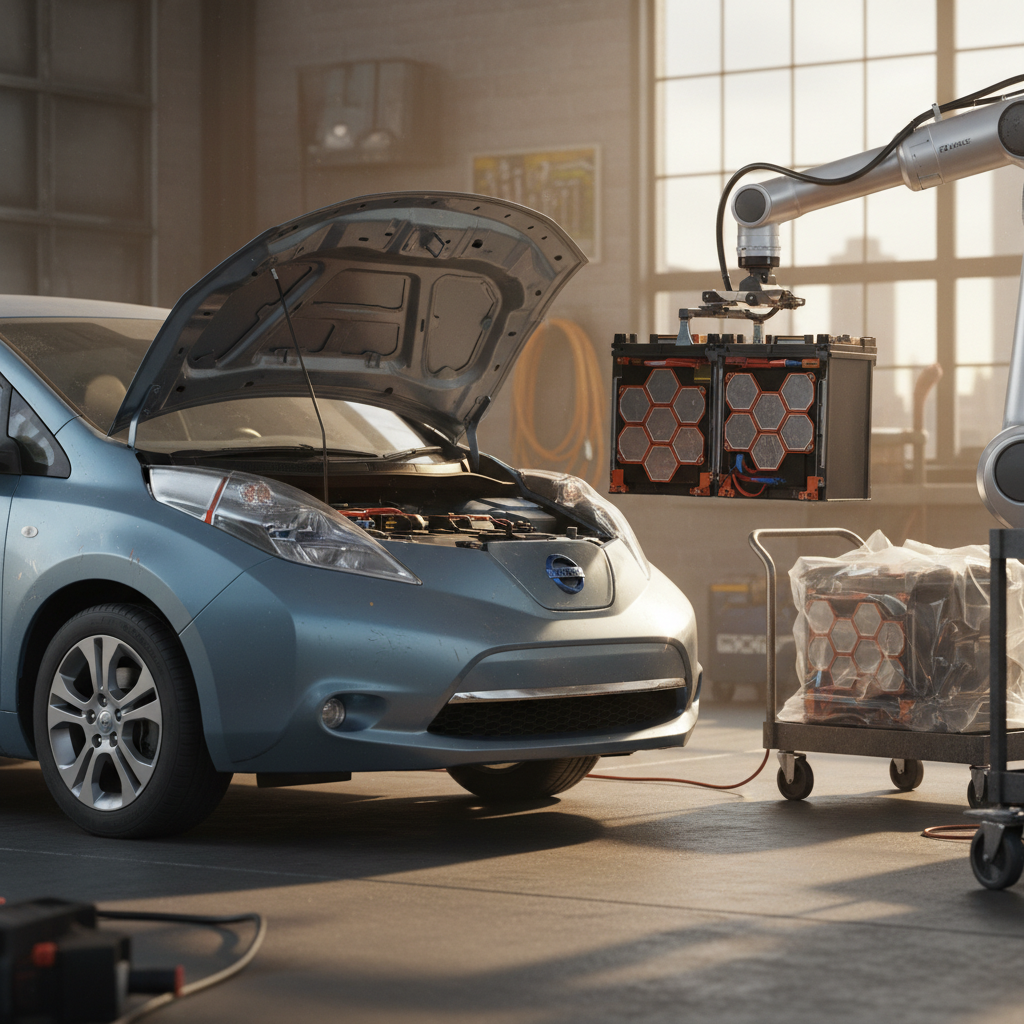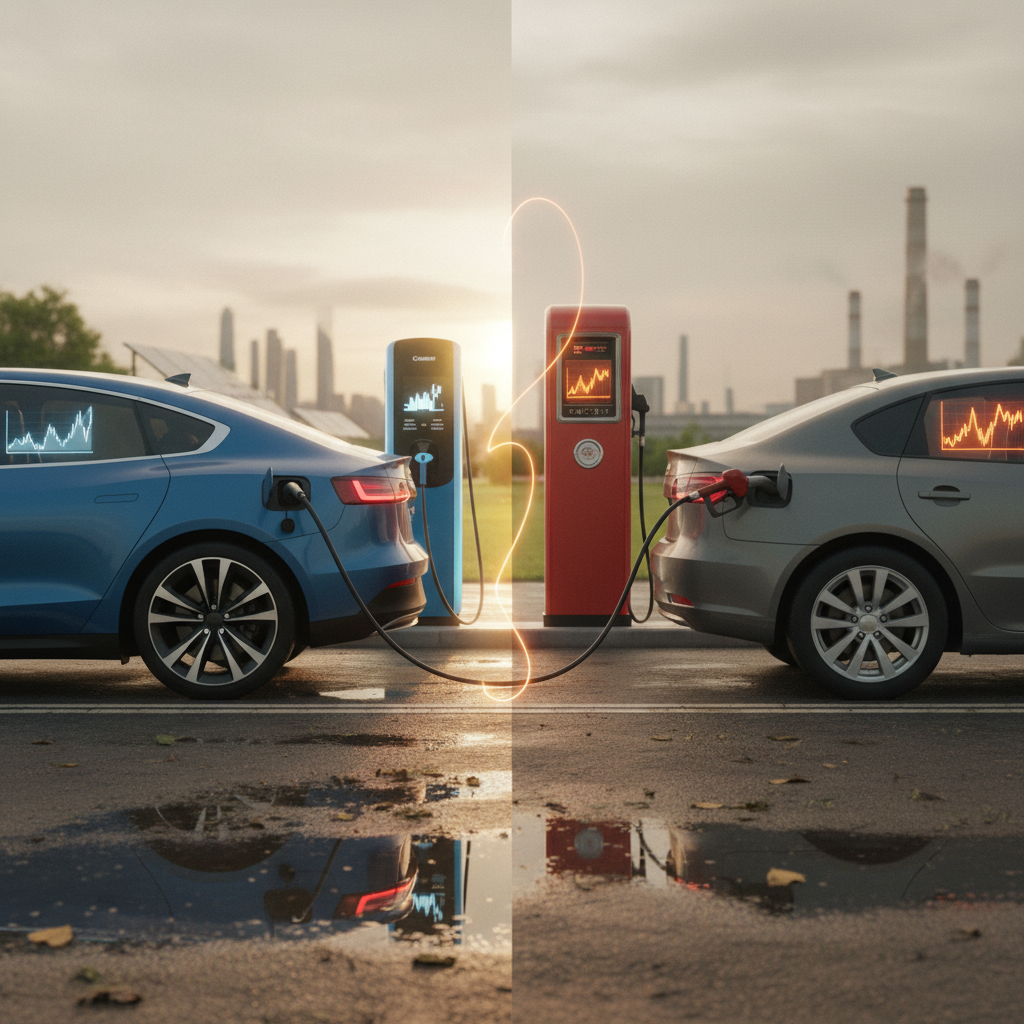Seeing a BMW i3 for sale can be tempting. This quirky, lightweight city EV was one of the first premium electric cars, with a carbon-fiber body, rear‑wheel drive, and a surprisingly fun personality. On the used market in 2025, it’s also one of the most affordable ways to get into an EV, if you understand which version you’re buying and how to judge battery health.
Production timeline at a glance
Why consider a used BMW i3 for sale?
What makes the BMW i3 special as a used EV
Strengths that still stand out in 2025
Designed as an EV from day one
The i3 rides on a unique carbon‑fiber and aluminum platform built specifically for electric power. That means a light curb weight, tight turning circle, and a roomy cabin in a small footprint.
Perfect city and commuter car
Short overall length, tall seating position, and strong off‑the‑line torque make the i3 ideal for urban errands and daily commuting, especially in crowded metro areas.
Depreciation is your friend
Original MSRPs were in luxury territory. Today, you can often find a clean i3 for the price of an economy car, while still enjoying premium materials and technology.
Who the i3 fits best
BMW i3 model years, batteries, and real‑world range
When you’re browsing BMW i3s for sale, the single most important spec is the battery pack. BMW upgraded the pack three times. Each step significantly changed range and ownership experience.
BMW i3 batteries and EPA range by generation
Approximate U.S. EPA ratings. Real‑world range varies with climate, driving style, and wheel/tire choice.
| Battery code | Model years (US) | Usable capacity | EPA range (BEV) | EPA electric range (REx) | Best for |
|---|---|---|---|---|---|
| 60 Ah (~18.8 kWh) | 2014–2016 | ~18–19 kWh | ~81 miles | ~72 miles | Short commutes, 2nd car |
| 94 Ah (~27–28 kWh) | 2017–2018 | ~27–28 kWh | ~114 miles | ~97 miles | Typical daily driving, light road trips with REx |
| 120 Ah (~37–38 kWh usable in 42.2 gross) | 2019–2021 | ~37–38 kWh | ~153 miles | ~126 miles | Longer commutes, more flexibility in winter |
Use this to match the i3 you’re considering with realistic range expectations.
Don’t shop by model year alone
Standard i3 vs i3s
From 2018 on, BMW added the i3s variant. It has slightly more power, a sportier suspension tune, and wider tires. The trade‑off is a small hit to efficiency and a firmer ride.
Which should you pick?
If you value comfort and maximum range, the regular i3 is usually the better bet. If you care about sharper handling and don’t mind a stiffer ride, the i3s can be rewarding, especially on twisty roads.

BEV vs REx: which BMW i3 should you buy?
Shopping for a BMW i3 for sale, you’ll notice two main types: pure electric (BEV) and REx (Range Extender). Mechanically they share the same electric drivetrain, but REx models add a small two‑cylinder gasoline generator and fuel tank.
Pros and cons of BEV vs REx i3
Use this quick comparison to narrow your search
All‑electric i3 (BEV)
- Pros: Simpler powertrain, slightly lighter, more trunk space, no gas engine maintenance.
- Cons: You are 100% dependent on charging infrastructure; less flexible for occasional long trips.
- Best for: Owners with reliable home/work charging and predictable daily mileage.
Range Extender i3 (REx)
- Pros: Small gas engine maintains charge when the battery is low, reducing range anxiety.
- Cons: More complexity, a bit heavier, slightly higher maintenance costs, smaller gas tank on early U.S. cars.
- Best for: Drivers without perfect charging coverage or with occasional longer journeys.
Think about your worst‑case trip
Pricing: what do used BMW i3 models cost?
Exact prices vary by mileage, condition, options, and local demand, but as of late 2025 the BMW i3 sits in a very attractive corner of the used‑EV market. You’re often getting premium materials and engineering for compact‑car money.
Typical U.S. asking‑price ranges (late 2025, rough guide)
Total cost of ownership matters more than sticker
Battery health and longevity on a used i3
BMW’s liquid‑cooled battery packs have generally held up well, and reliability surveys rate the i3 as better than many rivals. Still, pack condition is the single biggest factor in how happy you’ll be with a used BMW i3.
- Most i3s lose some capacity in the first few years, then degrade more slowly if properly cared for.
- Hot climates, frequent DC fast charging, and constantly charging to 100% can accelerate degradation.
- A healthy early‑generation 60 Ah pack might show ~70–80 miles of real‑world range today; a strong 120 Ah pack can still deliver around 140+ miles in mixed driving.
- Software updates and careful charging habits from previous owners can slightly improve longevity.

How Recharged de‑risks battery questions
Common BMW i3 issues to watch for
No used car is perfect. The i3 has a solid reliability record overall, but certain patterns show up in owner surveys and service data. Knowing them helps you quickly sort strong candidates from problem cars when you’re scrolling through BMW i3s for sale.
Typical used i3 trouble spots
Most are manageable, if you know to look for them
Charging hardware quirks
Some owners report intermittent issues with the charging port latch or wallbox communication. Make sure the car charges reliably on both Level 2 and DC fast chargers during an inspection.
Suspension & tires
The i3’s light weight and relatively narrow tires mean potholes can take a toll. Listen for clunks, check for uneven tire wear, and budget for quality tires, especially on the sportier i3s.
Interior trim & doors
The rear “coach” doors put unique stress on latches and seals. Ensure doors align properly, open/close easily, and that there’s no wind noise at highway speeds.
Walk away from these red flags
Range and charging: how the i3 fits your life
Before making an offer on a BMW i3 for sale, map your daily and occasional driving realistically. The i3 is brilliant within its envelope, but you’ll be happier if you size the battery and drivetrain to your actual use, not a best‑case scenario.
City & suburban commuters
- Most 94 Ah and 120 Ah i3s easily cover a 40–60‑mile round trip, even in winter.
- Level 2 home charging will refill the pack overnight from near empty.
- If you regularly hit only 30–40% of the car’s range, a BEV i3 is usually sufficient.
Occasional road‑trippers
- A 120 Ah REx or 94 Ah REx gives you DC fast charging plus the gasoline backup for sparse charging corridors.
- Plan longer trips around high‑speed charging stops every 80–100 miles.
- Use apps like PlugShare or A Better Routeplanner to test routes before you buy.
Check your local charging ecosystem
Inspection checklist before you buy a BMW i3 for sale
Whether you’re buying locally or online, a structured checklist keeps you from getting distracted by fun colors and wheel designs. Here are the key items I’d verify on any used i3 before committing.
Used BMW i3 pre‑purchase checklist
1. Confirm battery generation and drivetrain
Verify 60 Ah, 94 Ah, or 120 Ah from documentation or VIN decoding, and confirm whether the car is BEV or REx. This determines your realistic range and long‑term satisfaction more than any other spec.
2. Review battery health data
Ideally, get a professional battery health report like the Recharged Score. At minimum, note state‑of‑charge vs. estimated range after a full charge and compare that to original EPA numbers.
3. Test all charging modes
Charge on Level 2 (240V) for at least 15–20 minutes and, if possible, at a DC fast charger to be sure the car connects, ramps up to expected power, and doesn’t throw errors.
4. Inspect wheels, tires, and brakes
The i3 uses unusual narrow tires; mismatched or severely worn tires can be a negotiation point. Check for curb rash on wheels and confirm there’s no vibration under braking.
5. Check interior wear and electronics
Toggle iDrive, navigation, Bluetooth, climate control, and driver‑assist features. Carbon‑fiber and eco‑materials wear differently than leather and plastic; look closely at high‑touch areas.
6. Scan for stored fault codes
If you’re buying through a private party, pay for a pre‑purchase inspection that includes a high‑voltage system scan. On Recharged, this diagnostic work is built into the listing process.
How Recharged helps you buy a better i3
Buying a used EV is different from buying a gasoline car. Odometer mileage and leather condition don’t tell you much about battery health, charging performance, or whether software is up to date. That’s where Recharged is built to help.
What you get when you shop a BMW i3 for sale on Recharged
Transparency around battery, value, and logistics
Recharged Score Report
Every i3 on Recharged includes a detailed battery‑health and vehicle‑condition report, so you can compare cars with hard data, not just seller claims.
Flexible ways to sell or trade
If you’re moving from another EV or gas car, use our instant offer or consignment options, or trade in directly as part of your i3 purchase.
Digital purchase & delivery
Complete your purchase fully online, get help with financing, and have your i3 delivered nationwide, or visit our Experience Center in Richmond, VA if you’d like to see cars in person.
Make the numbers work before you fall in love
BMW i3 for sale: FAQ
Frequently asked questions about buying a used BMW i3
Is a used BMW i3 right for you?
A used BMW i3 can be a fantastic choice if you value nimble handling, premium feel, and low running costs more than cross‑country range. The key is to match the right battery generation and BEV/REx configuration to your real‑world driving, and to insist on clear battery‑health information before you buy.
If you’re currently browsing BMW i3s for sale, take a moment to map your daily routes, think honestly about your longest trips, and decide which battery and drivetrain you need. Then, look for listings that back up their claims with data. When you shop through Recharged, that data is baked in, from the Recharged Score battery report to fair‑market pricing and EV‑experienced support at every step.



